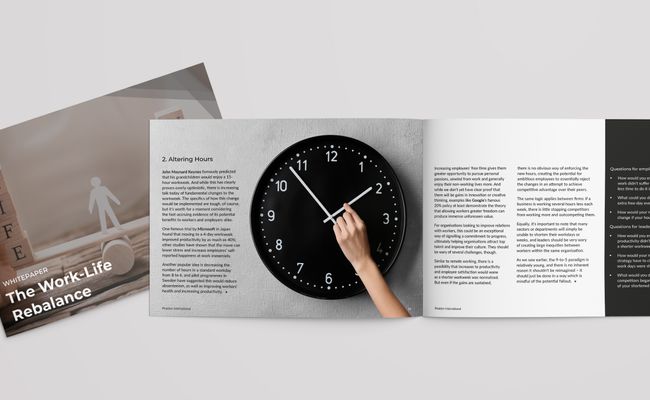In light of the anxiety and stress caused by the global health crisis and its fallout, it’s no wonder that many have felt the weight of the past twelve months on their shoulders. Social isolation, video call fatigue, and an increase in employee burnout are some of the driving factors impacting the lives of so many this year.
Whether you are struggling to stay motivated, feeling overwhelmed about returning to the office, or the pandemic has taken a strain on your overall mental health, making room for wellness practices may help you achieve a mentally healthy mind, body, and soul. Here are 5 strategies to get you started!
1. Get Moving
Study after study shows that exercise improves your mental and physical wellbeing. Even though exercise itself acts as a stressor, it reduces the harmful effects of other stressors and can act as a remedy to stress, depression, and other negative emotions. Overwhelmingly, the evidence shows that exercise helps your brain to function properly by increasing cerebral blood flow, which has positive effects on mental health, cognition, and brain activity.
While the wet weather may make a jog seem less than appealing, there are plenty of ways you can incorporate a little bit of movement into your work day. Take the stairs instead of the lift. Take at least 20 minutes away from your laptop and go for a walk outside and grab yourself a coffee from that great place down the street, whatever the weather. Small steps can make a big difference to your mood. It’s recommended that the average adult should seek to achieve 10,000 steps of daily activity, so boost your mood by taking walk intervals between work and home.
2. Declutter your Workspace
Scientists have found that a cluttered environment may make it more difficult for us to focus. Researchers hypothesize that multiple objects compete for neural representation in the visual cortex – explaining why we may feel more unfocused when there’s a lot of clutter around us. Having an organized place for all your essentials can enable you to think more clearly while working; improving productivity and reducing stress levels.
Invest in some personal items to make your space feel more pleasant. Add a luscious green plant to purify the air or a framed photo of someone you love. All these things can serve as a motivator for why you work hard at what you do.
If you’re working from home, the distinction between your workspace and your living space might have been blurred. To remedy to this disruption, create boundaries. Close your laptop, put your notebook away and come back raring to go.
3. Music
Music can have a profound effect on your mood. Similarly to exercise, listening to music can improve blood flow, lower levels of stress-related hormones like cortisol, and ease pain.
According to Kim Innes, a professor of epidemiology at West Virginia University’s School of Public Health, music seems to “selectively activate” neurochemical systems and brain structures associated with positive mood, emotion regulation, attention and memory in ways that promote beneficial changes.
A 2015 review in The Lancet found that people who listened to music before, during, or after surgery experience less pain and anxiety compare to those who didn’t listen to music. Most astonishingly, they didn’t even need as much pain medication.
You just need to find the right playlist.
4. Connect
Altruism has many personal benefits. Using MRI scans, multiple neuroscience studies have found that when we do something nice for someone else, the brains activate in regions that signal pleasure and reward.
Stuck for ideas on how to add a little altruism to your work day? Here are a few suggestions of what you can do:
Pass it on: Pay for a stranger’s coffee or donate to charity.
Reconnect with someone: Drop a text or LinkedIn message to an old colleague you haven’t spent time with in a while.
Give an unexpected gift to a colleague: Give them a book they mentioned they wanted to read or surprise them with a delivery of their favorite pastry in the morning.
Thank someone who made a difference to your professional life: Whether a teacher, professor or mentor, let someone know how they helped you with your career.
Keep track of your acts of kindness to reinforce a positive association between work and those fuzzy feelings.
5. Find a new job that makes you happy
If all of the above fails, perhaps it’s time to rethink your job. If your stress at work spills into your home life and most days at work seem to make you unhappy, maybe your role is the root of the problem. Whether you have an unsupportive boss, an unclear path to promotion, or feel undervalued, there are many valid reasons for feeling unhappy in your job.
Alternatively, if you don’t want a career change and working patterns arise as the problem, ask your employer for strategies to reduce stress. Although it may be a challenge to find a job that offers the perfect recipe, pursuing a new career path may help build a healthy self-esteem and boost your overall well-being.
Need help? Feel free to get in touch with us, for personal career advice.







